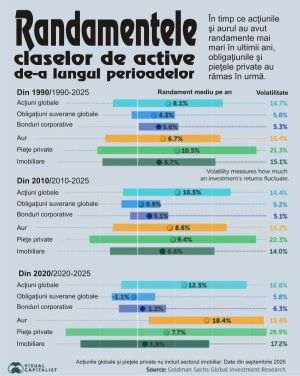Major global pharmaceutical companies such as Eli Lilly and Novartis have increased their research and development spending, according to the Global Innovation Index 2024, a report by the World Intellectual Property Office (WIPO).
The data, for 2022 and 2023, taken over by visualcapitalist.com, shows that Eli Lilly, Novartis and Merck each increased their research and development spending by more than 20%. These companies reported the largest increases in spending in the group under analysis, which, however, excluded one major manufacturer - Novo Nordisk of Denmark, whose portfolio includes the diabetes/weight loss drug Ozempic.
According to the cited source, Eli Lilly of the US, which is currently the most valuable healthcare company in the world, and a pioneer in diabetes and weight loss drugs, increased its research and development spending by 29.5%. One of its newest drugs, Zepbound (Tirzepatida), is a prescription injectable for obesity, similar to Novo Nordisk's Ozempic (Semaglutide).
The weight-loss drug market is one of the most lucrative in healthcare, with a slew of new drugs from various companies expected to launch in the next few years.
One such company is Merck (US), which is looking to expand its market share with next-generation weight-loss therapies that offer additional cardiometabolic benefits. Merck is also focusing on oral drugs rather than injectables, the company said. Its R&D spending rose 21.7% in the period.
Meanwhile, Switzerland's Novartis is focusing its R&D efforts on cancer therapies, with its spending on the drug rising 24%. The company's CEO recently said in an interview that Novartis will not join the "frenzy" of weight loss drugs.
Japan's Takeda Pharmaceutical increased its research/development spending by 15.9%, US-based Gilead Sciences by 14.5%, Germany's Boehringer Sohn by 14.3%, UK-based GSK by 13.4%, and UK-based AstraZeneca by 10%, according to the source cited. In the case of US-based AbbVie, these expenses rose by 8.5%, and US company Johnson & Johnson allocated a larger budget by 3.3%. France's Sanofi increased its R&D spending by just 0.3%, while Roche (Switzerland)'s R&D costs fell by 0.1%, Bristol-Myers Squibb (USA)'s by 2.2%, Pfizer (USA)'s by 7.4%, and Bayer (Germany)'s by 18.3%.




































